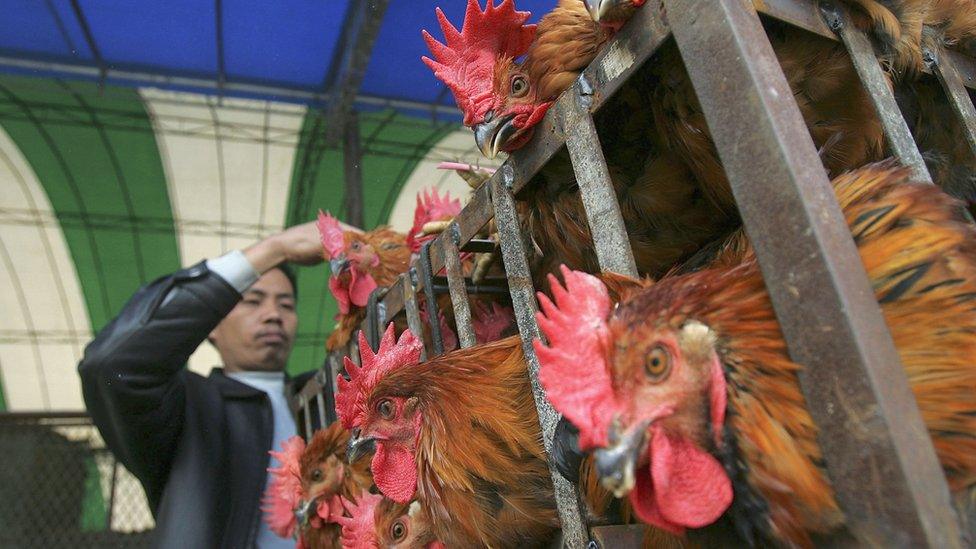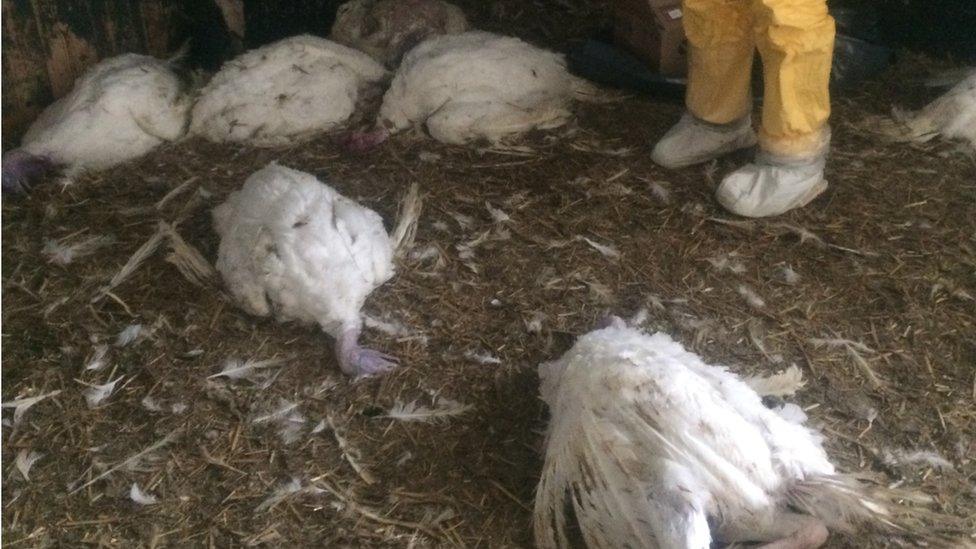Tiny genetic change lets bird flu leap to humans
- Published

At least six provinces have reported human cases of H7N9 influenza this year, according to Chinese state media
A change in just a single genetic "letter" of the flu virus allows bird flu to pass to humans, according to scientists.
Monitoring birds for viruses that carry the change could provide early warning of risk to people, they say.
Researchers at the University of Hong Kong studied a strain of bird flu that has caused human cases in China for several years.
Birds carry many flu viruses, but only a few strains can cause human disease.
H7N9 is a strain of bird flu that has caused more than 1,000 infections in people in China, according to the World Health Organization.
Most cases are linked to contact with infected poultry or live poultry markets.
The change in a single nucleotide (a building block of RNA) allows the H7N9 virus to infect human cells as well as birds, say Prof Honglin Chen and colleagues.
They say there is "strong interest in understanding the mechanism underpinning the ability of this virus to cause human infections and identification of residues that support replication in mammalians cells is important for surveillance of circulating strains."
Flare-up
Dr Derek Gatherer, an expert on viruses at Lancaster University, UK, says more surveillance of bird flu viruses is needed.
"The recent flare-up of H7N9 bird flu in China has been the cause of some concern this winter, and the demonstration that the new replicative efficiency mutation is present in this strain is not good news," he told BBC News.
"Also, the observation that this mutation has been present in other bird flu subtypes like H9N2 and spreading slowly for over 15 years shows that H7N9 isn't the only kind of bird flu that is potentially a pandemic risk for humans.
"We need to maintain a broader surveillance of bird flu to identify which strains have this mutation."
The research, published in the journal, Nature Communications, external, will help scientists understand more about how bird flu viruses adapt to infect humans.
Follow Helen on Twitter, external.
- Published13 October 2016
